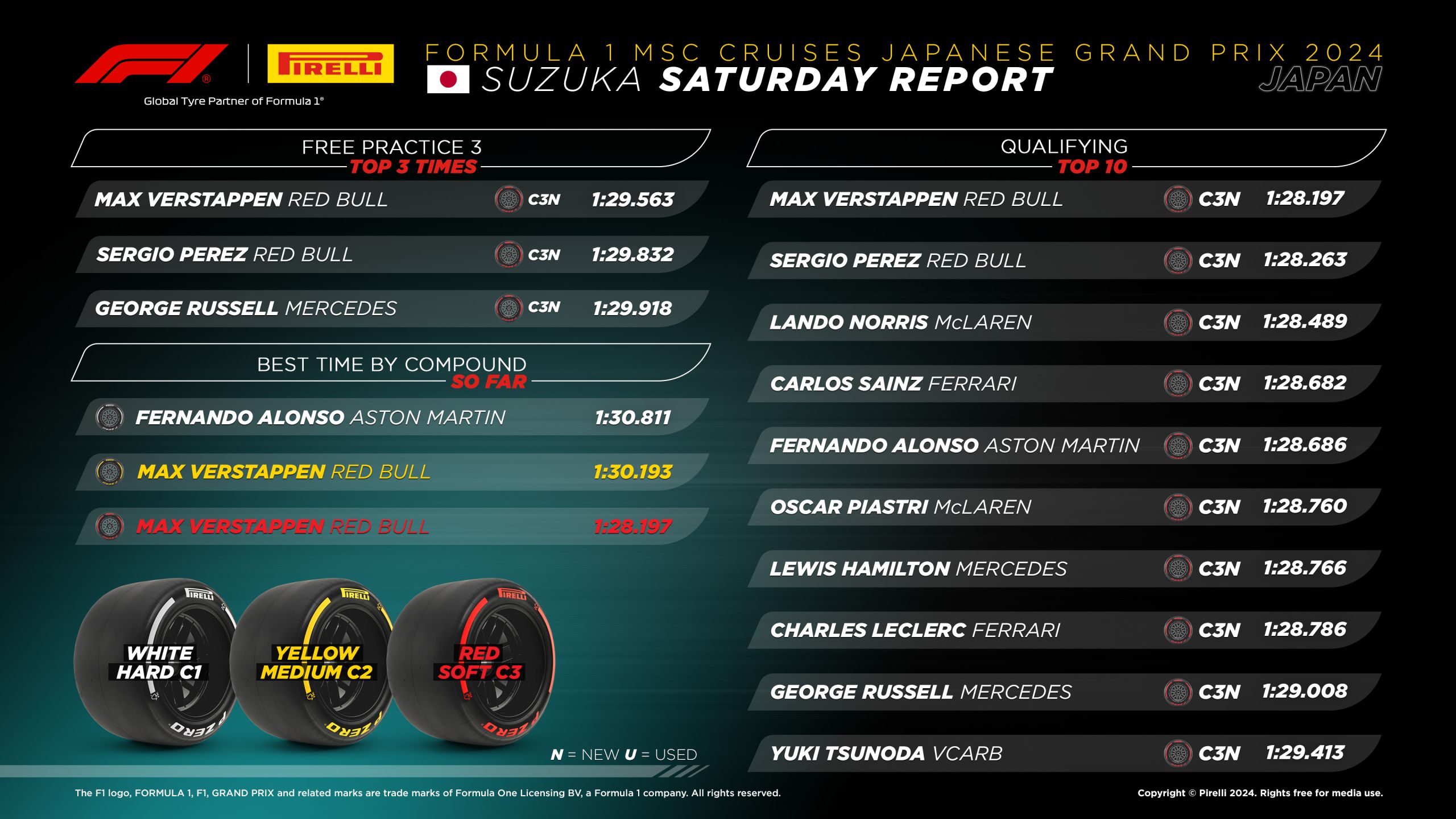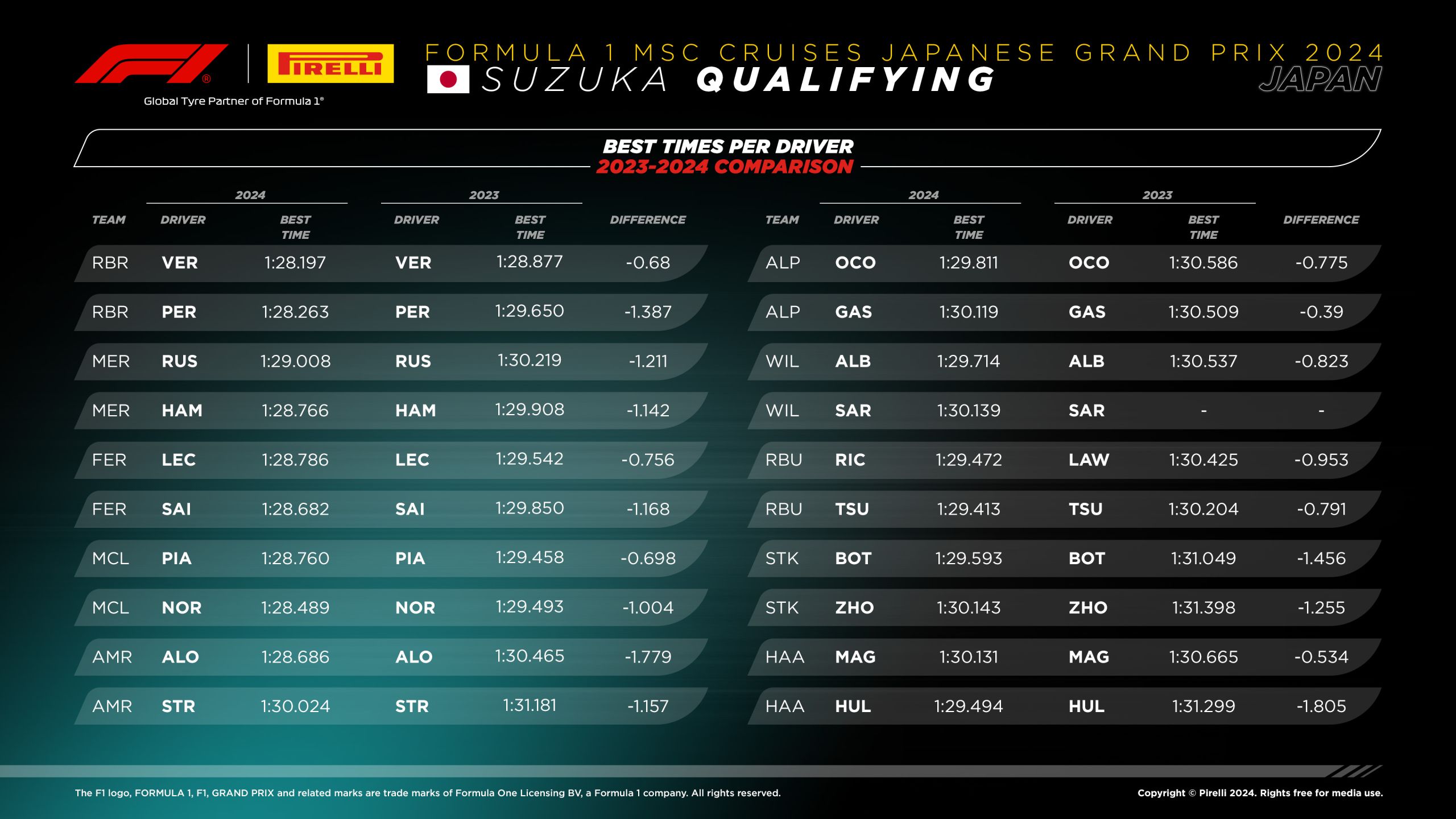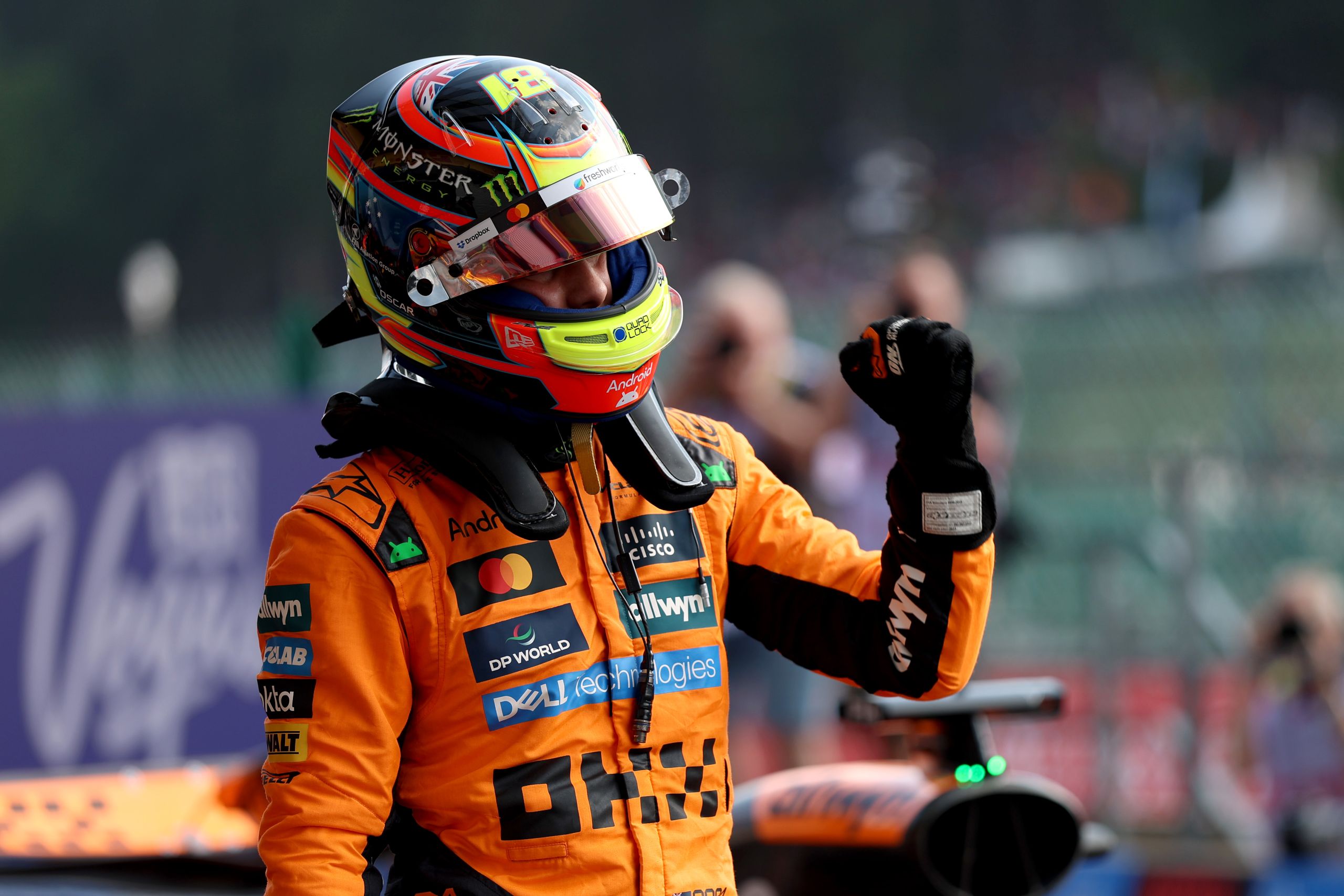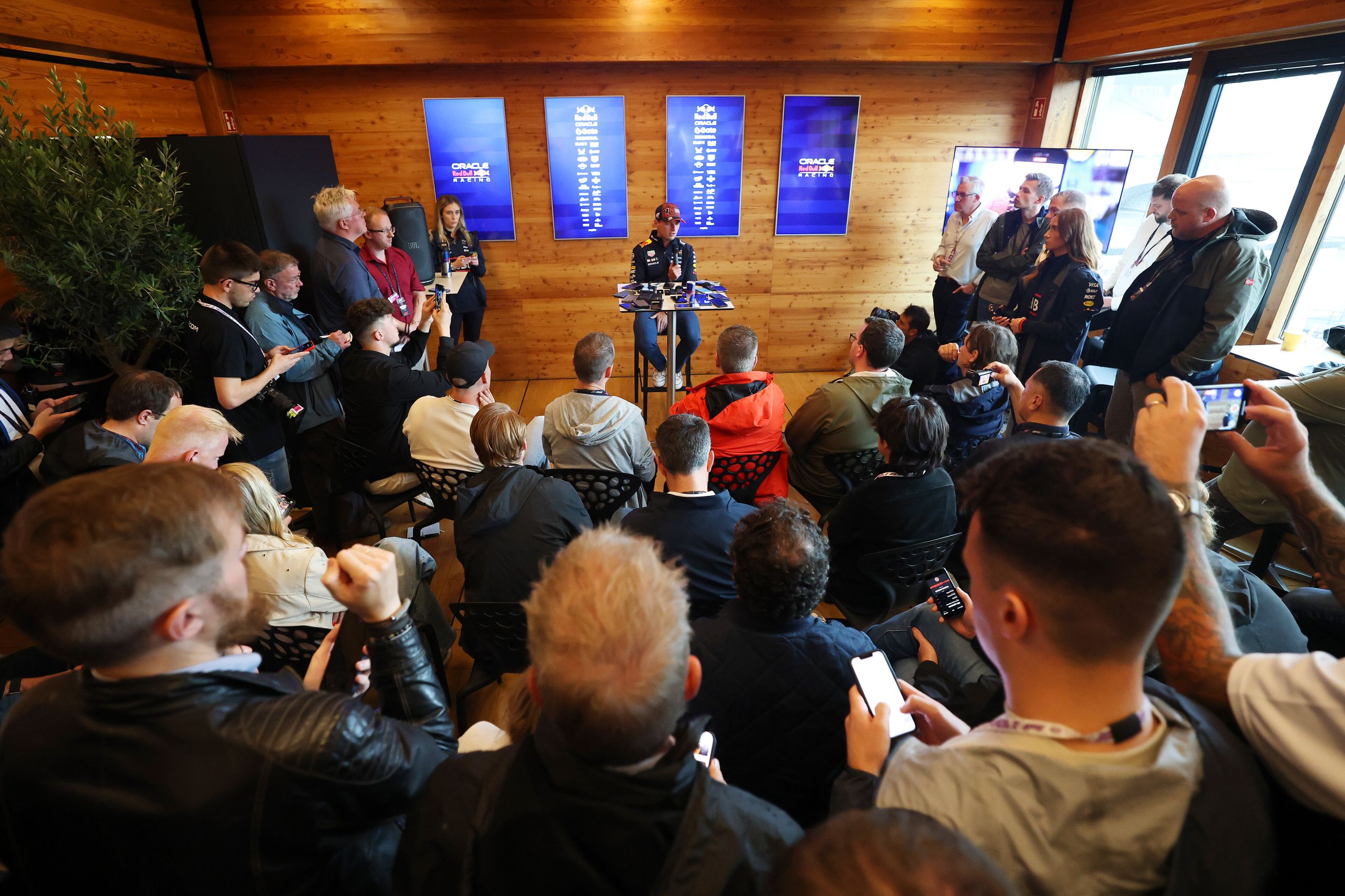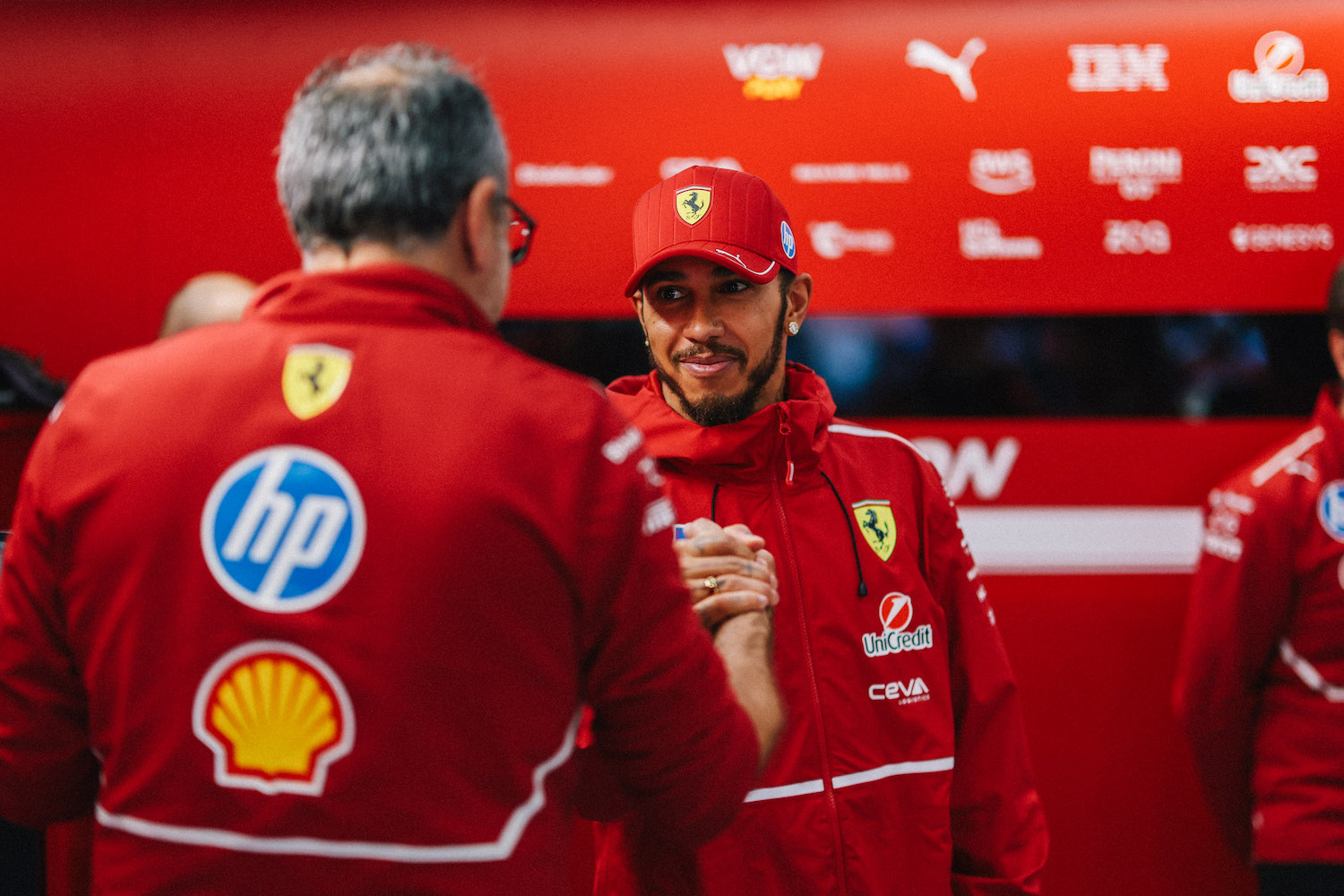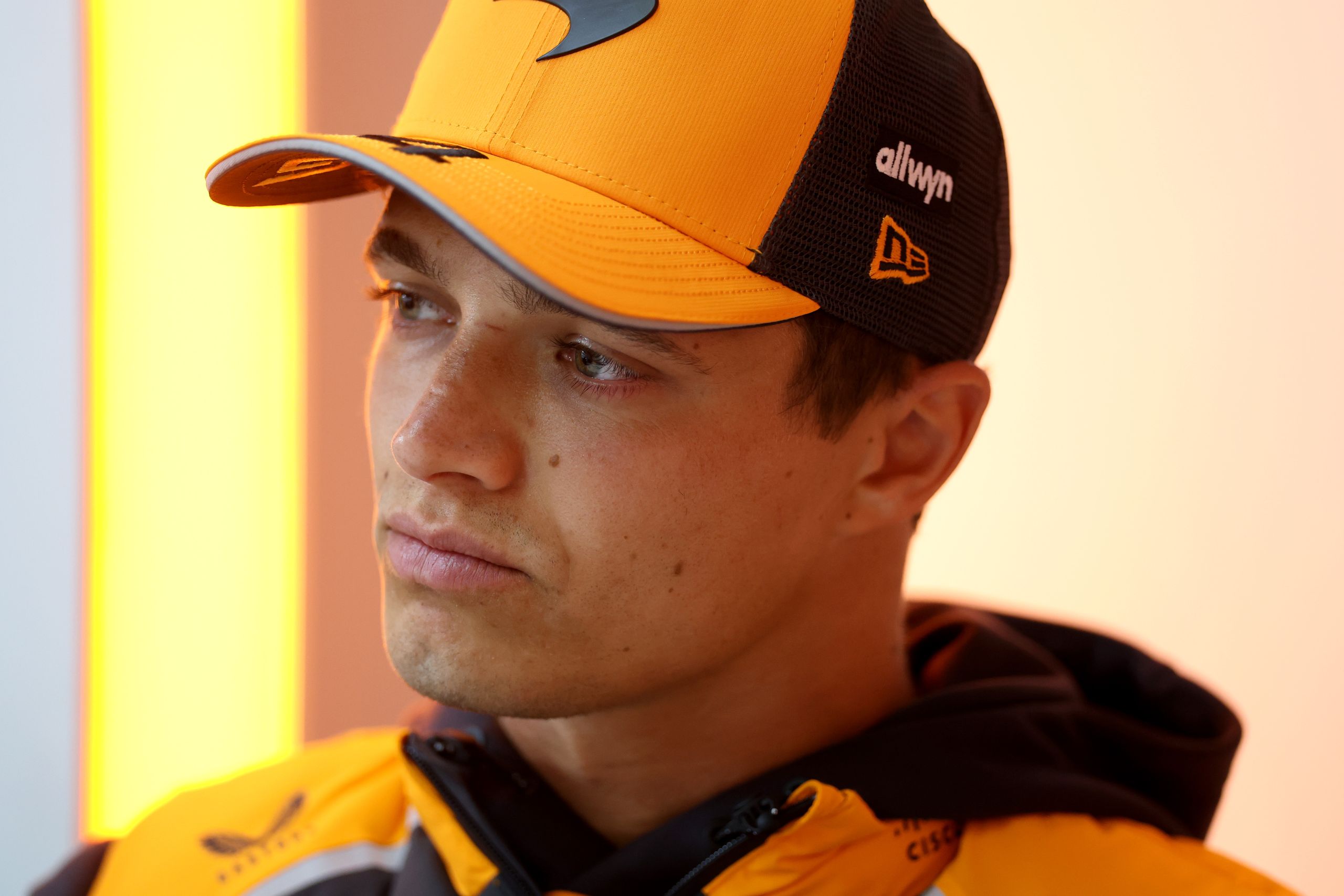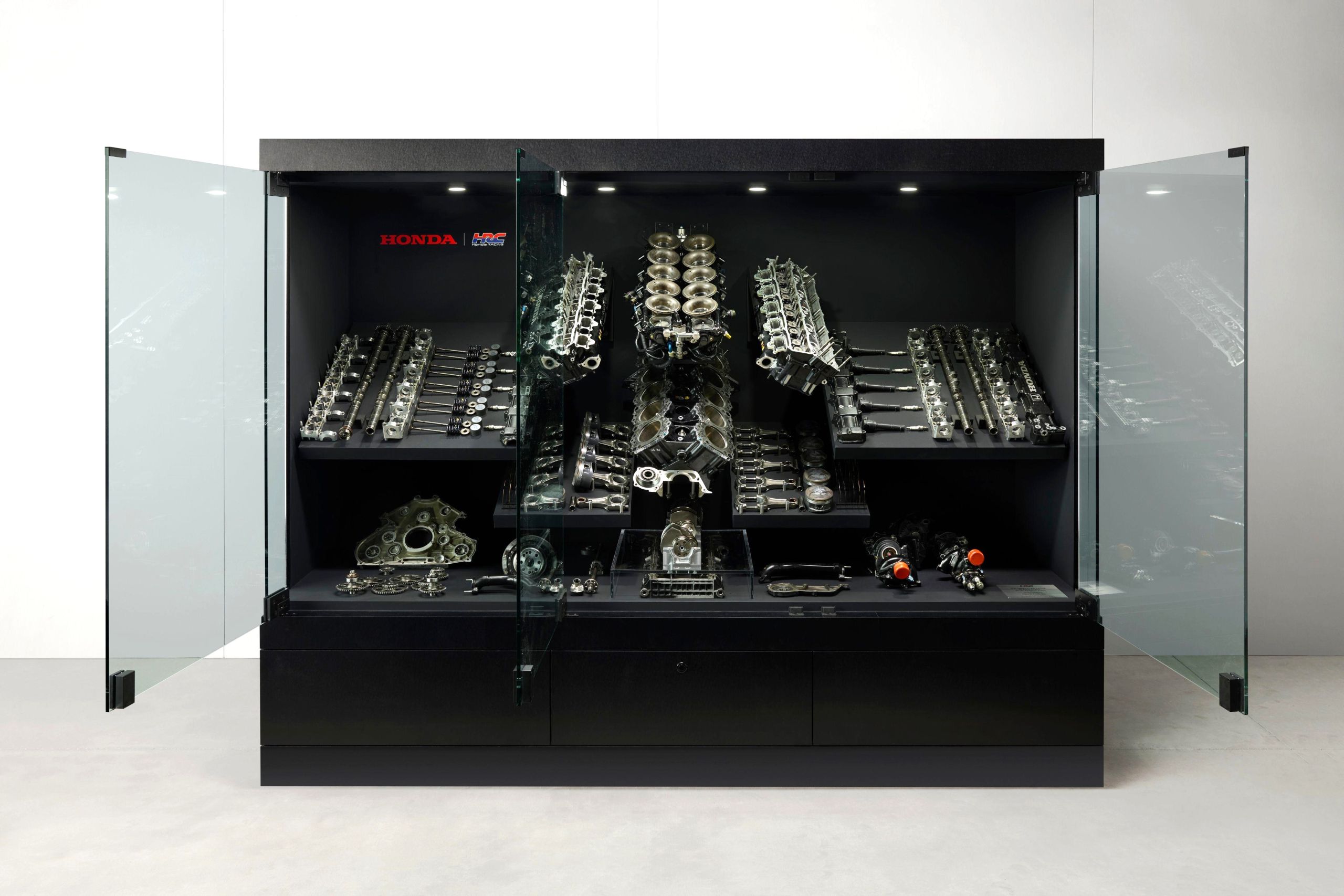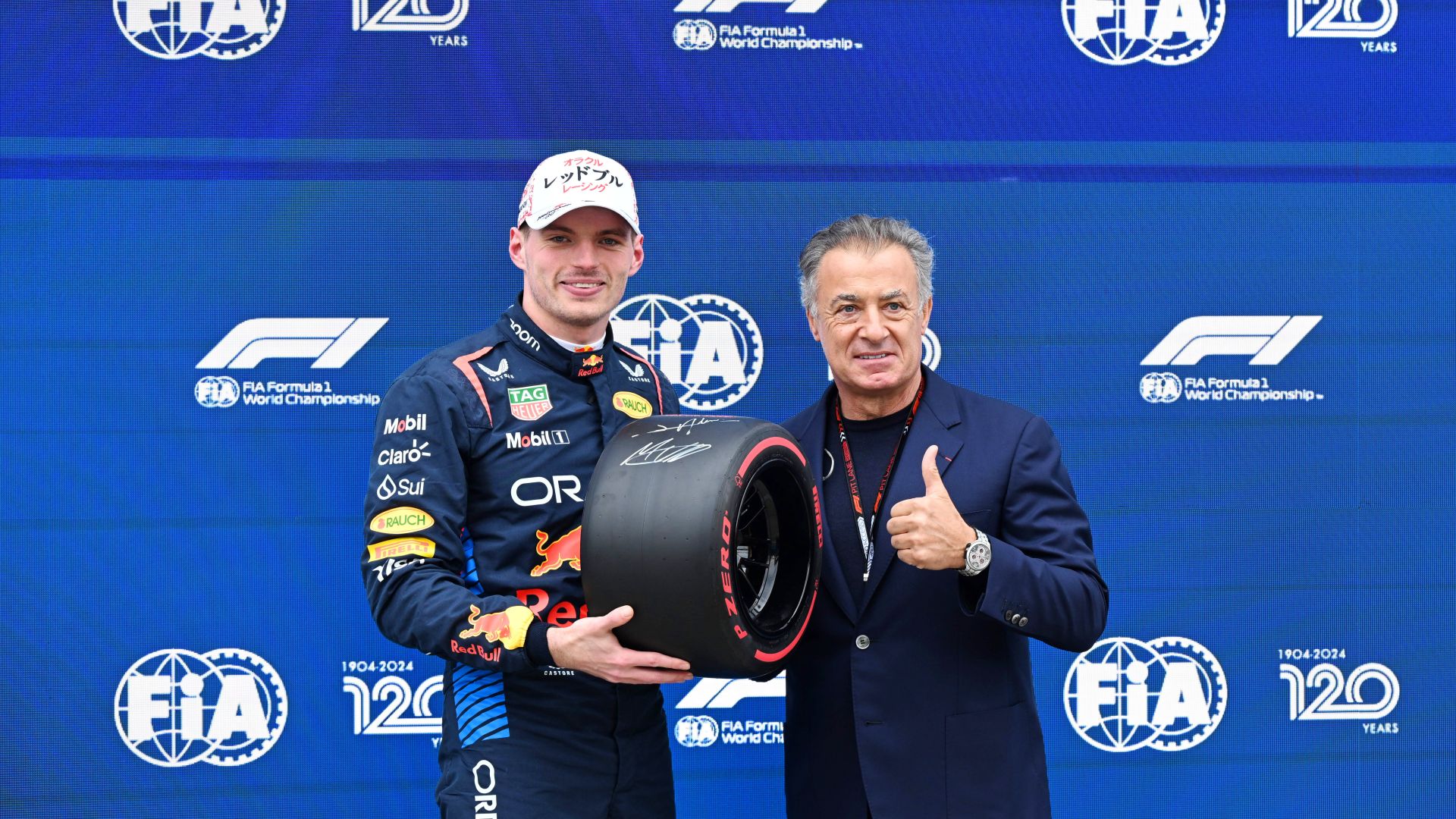
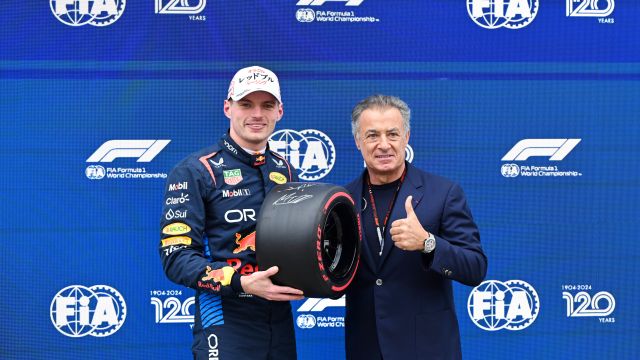
2024 Japanese Grand Prix: Qualifying Tyre Analysis – Another pole position for Max Verstappen, a clean sweep across all four races held so far this season, the fifth in a row if one also takes into account last year’s final round, the Abu Dhabi Grand Prix. The three-time world champion was quickest in all three phases of qualifying, improving on every run, eventually getting down to a time of 1’28”197. For the first time this year, and also for the first time since last year’s opening round, the Dutchman will have his team-mate Sergio Perez (1’28”263) alongside him, the closest the Mexican has been to him all year. On the second row, we have Lando Norris (1’28”489) for McLaren and Carlos Sainz (1’28”682) in the Ferrari.
This morning’s third free practice session was busier than usual, as teams tried to make up for lost time, after rain washed out most of FP2 yesterday. Apart from the usual qualifying simulation work, all the teams tried to acquire data from the various compounds over a long run, using mainly the Soft and the Medium. The only exception was Aston Martin, both of whose drivers did a long run on the Hard.
Qualifying was all about the Soft and as predicted, it was only good enough for one timed lap. Worth noting that today’s pole position lap was almost seven tenths quicker than the fastest qualifying time from six months ago (1’28”877). This increase in performance, using the same compounds as in 2023, was down to lower temperatures (track temperature 12 °C less yesterday afternoon) as well as the obvious improvement from this year’s cars over last year’s.
Verstappen received his Pirelli Pole Position Award from Jean Alesi. The 2001 Japanese Grand Prix was the Frenchman’s last appearance in Formula 1. Jean raced at Suzuka 12 times, finishing third in 1994 with Ferrari. In Japan, he also raced in the 1995 Pacific Grand Prix.
Mario Isola – Pirelli Director of Motorsport
“At what is one of the most demanding tracks for drivers and cars, we witnessed Verstappen and Red Bull dominate qualifying and for the first time in over a year, both the team’s drivers are on the front row. Therefore, there’s a clear favourite for tomorrow, but there are still plenty of unknown factors at play, starting with strategy. Despite it being considerably cooler than for last year’s race, degradation is still particularly significant and therefore, a two-stop is still the quickest choice.
“It’s a different story when it comes to the permutations between the available compounds, especially as the Soft, which was effectively a non-starter last year, could be a genuine option tomorrow, particularly in the first stint, for those looking to have a performance edge in the opening laps. Another consideration is that overtaking is anything but easy on this track and, as we have seen so far this season, the current generation of cars increasingly suffers from instability when closing on another car, making it even more complicated to pass, even with a big speed advantage. The undercut – stopping early to make the most of tyre performance in the first few laps – is very efficient here and will definitely be a factor.”
“The quickest strategy is based on using the Soft and the Hard, but some teams, such as Ferrari, Red Bull and Aston Martin as well as Magnussen, who only have on set of the C1 available, will have to try something else. They could opt to discard the C3 in favour of the C2, which proved to be competitive in free practice, or they could use all three compounds. It all adds up to what should be an interesting race from start to finish.”
2024 Japanese Grand Prix: Qualifying Tyre Analysis
